Workplace ethics training in California is no longer just a legal checkbox; it is becoming the foundation for healthier, fairer workplaces where people actually want to stay.
Let’s get straight to the point: workplace ethics training in California isn’t about forcing people to sit through another mandatory seminar. It is about building a culture where people treat each other with respect, know their boundaries, and feel safe showing up fully. As someone who has worked through burnout and coached others through their tough transitions, I can say with certainty that culture matters. And training is where it starts.
California is a place of bold laws and bold diversity. That creates a beautiful, complex working landscape. But it also demands clarity, intention, and real education when it comes to ethics.
How Workplace Ethics Show Up in California Offices
Ethics don’t just live in the policy manual. They show up in how we respond to grey areas, how leaders communicate under pressure, and how organisations handle mistakes.
California has some of the strictest workplace regulations in the country, including laws that prevent sexual harassment and provide wage and hour protections. However, legal compliance does not equate to ethical leadership. That is where training comes in. It bridges the gap between what is required and what is right.
Workplaces today are facing tough questions about inclusion, integrity, and accountability. Without clear ethics training, employees are left guessing. And that guessing can lead to silence, fear, or even unintentional harm.
Why Ethics Training for Employees Must Go Beyond Basics
Let’s break it down. Good ethics training for employees does not just tell people what not to do. It teaches them how to respond in real, complex situations. It should be interactive, practical, and honest.
Navigating Grey Areas
Real life is not black and white. Employees need support navigating murky decisions, when to speak up, how to address microaggressions, and how to recognise ethical blind spots.
Emotional Intelligence Matters
This is huge. Most workplace conflicts are not about the rules; they are about how people handle emotions. Good training helps people recognise emotional triggers, de-escalate tension, and build empathy into their daily actions.
Use Real-Life Scenarios
Theory means nothing without application. If employees do not see how the training relates to their day-to-day, it won’t stick. Case studies and real examples make ethics personal, and that is where growth starts.
The Ripple Effect of Strong Workplace Ethics
Here’s what this really means: when ethics are built into your workplace culture, people trust each other more. They speak up. They collaborate. They stop wasting energy worrying whether they will be heard or protected. And from what I have seen as a coach, former physician, and observer of countless organisations, this psychological safety can be the difference between high-functioning teams and quiet, toxic churn.
This is why companies like Shift HR Compliance Training design their courses to go beyond legal compliance. They offer role-based, situation-specific training that not only meets state mandates but also addresses the real needs of modern employees.
Where Leaders Fit In
Ethical culture is not just about employee behaviour. It starts at the top.
When leaders avoid hard conversations or fail to model ethical decision-making, the entire system weakens. On the other hand, when leaders actively engage in ethics training and hold themselves accountable, it creates an environment that encourages the whole team to do the same. Leadership buy-in is not a bonus; it is the whole engine.
When Ethics Training Gets Ignored: What’s at Stake
Let’s be honest. Ignoring ethics training is like skipping oil changes for your car. It may not be noticeable right away, but over time, the damage accumulates.
Confusion about reporting misconduct. Lack of trust among coworkers. Misaligned values. These things can break teams apart. And in California, with its strong legal protections, the financial and reputational risks are just as real.
But even more importantly, the human cost is high. Stress, silence, burnout. It is the kind of environment that makes people shut down or walk out. And no job is worth sacrificing your integrity or well-being.
Final Thoughts: Start the Conversation, Change the Culture
Ethics training should not be boring, abstract, or something people dread. It should feel empowering. It should reflect your values. And it should leave your team feeling clearer, safer, and more capable.
You do not need to overhaul your entire organisation overnight. Start small. Ask better questions. Make space for reflection. Choose training that invites honest conversations, not just compliance clicks.
So if you’re ready to build a workplace people trust, ethics training is a smart, human-first place to start. Take the step that sets the tone for everything else.
Frequently Asked Questions:
1. Why is workplace ethics training important?
It helps build a culture of integrity, respect, and accountability, reducing the risk of misconduct and increasing employee engagement.
2. What does ethics training for employees typically cover?
Topics often include harassment prevention, diversity and inclusion, reporting procedures, conflict resolution, and values-based decision-making.
3. Is ethics training legally required in California?
Yes, certain types, like sexual harassment prevention training, are required for many employers. But broader ethics training is highly recommended for a healthier workplace culture.
4. How often should employees receive ethics training?
Best practices suggest training at onboarding, with regular refreshers every one to two years, especially as laws and company policies evolve.
5. What makes ethics training effective?
Clarity, relevance, and real-world application. Training should be tailored to specific roles and industries, incorporating practical examples and discussions.


